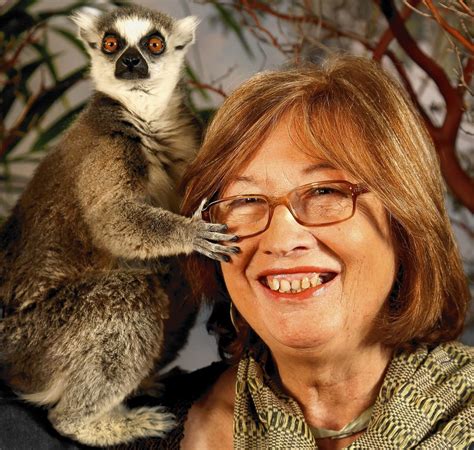A Quote by Noam Chomsky
Some innate capacity - some part of the human genetic endowment - enters into language acquisition. That much is uncontroversial among those who believe that humans are part of the natural world. If it were not true, would be a miracle that my granddaughter reflexively identified some elements of the blooming buzzing confusion as language-related and went on to acquire capacities of the kind that you and I are now exercising, while her pet kitten (chimp, songbird, bee...), presented with exactly the same data, could not take the first step, let alone the later ones.
Quote Topics
Acquire
Acquisition
Alone
Among
Bee
Believe
Blooming
Buzzing
Capacities
Capacity
Confusion
Could
Data
Elements
Endowment
Exactly
Exactly The Same
Exercising
First
First Step
Genetic
Granddaughter
Her
Human
Humans
Identified
Innate
Kind
Kitten
Language
Language Acquisition
Later
Miracle
Much
Natural
Natural World
Now
Part
Pet
Presented
Related
Same
Some
Step
Take
Those
True
Were
While
World
Would
Would Be
Related Quotes
We believe we can also show that words do not have exactly the same psychic "weight" depending on whether they belong to the language of reverie or to the language of daylight life-to rested language or language under surveillance-to the language of natural poetry or to the language hammered out by authoritarian prosodies.
My first job was actually as a social worker. And then later, I got my PhD in anthropology. And I've always been interested in humans as well as primates. We are all kind of have the same emotions, the same goals and lives really. But to me, when I first got to Madagascar I realized that the lemurs lives are very closely related to what the humans are doing; partially because they've got both looking for natural resources. And if we can make some way that both humans and lemurs can live together peaceably and happily, that would be my goal for Madagascar.
But as the old Confusion of tongues was laudable, when men who were of one language in wickedness and impiety, even as some now venture to be, were building the Tower; for by the confusion of their language the unity of their intention was broken up, and their undertaking destroyed; so much more worthy of praise is the present miraculous one. For being poured from One Spirit upon many men, it brings them again into harmony. And there is a diversity of Gifts, which stands in need of yet another Gift to discern which is the best, where all are praiseworthy.
In Europe there's kind of a reaction to the European Union, kind of a move towards some kind of regionalization. It's more advanced in some regions than others, like in Spain for example. Catelan was repressed under Franco. People spoke it, but not publicly. It's now the language of Catelonia. The Basque language is being revived, not just the language but the culture, the folk music and everything else. So you're getting more diverse societies, and it's happening in Britain as well.
When I turned 50, I asked some of my girlfriends, all actresses of the same age, 'What are we going to do now?' I wanted to go live somewhere for a while, learn archaeology, or take part in healing the world on some level. I wanted to dig deep and say, 'Who am I now? What do I have to offer? What do I have to learn?'
Yet some of my friends tell me they understand 50 percent of what my mother says. Some say they understand 80 to 90 percent. Some say they understand none of it, as if she were speaking pure Chinese. But to me, my mother's English is perfectly clear, perfectly natural. It's my mother tongue. Her language, as I hear it, is vivid, direct, full of observation and imagery. That was the language that helped shape the way I saw things, expressed things, made sense of the world
Text input is certainly useful, but images and speech are a much more natural way for humans to express their queries. Infants learn to see and speak well before they learn to type. The same is true of human evolution - we've had spoken language for a long time compared to written language, which is a relatively recent development.
Some feminist critics debate whether we take our meaning and sense of self from language and in that process become phallocentric ourselves, or if there is a use of language that is, or can be, feminine. Some, like myself, think that language is itself neither male nor female; it is creatively expansive enough to be of use to those who have the wit and art to wrest from it their own significance. Even the dread patriarchs have not found a way to 'own' language any more than they have found a way to 'own' earth (though many seem to believe that both are possible).
Of course our genes will make some capacities very much easier to learn than others, and of course our genes themselves are not learned. But the point remains that genes themselves are not cognitive capacities, and that anything worth calling a cognitive capacity will depend to some degree on learning and so not be innate.
UG [universal grammar] may be regarded as a characterization of the genetically determined language faculty. One may think of thisfaculty as a 'language acquisition device,' an innate component of the human mind that yields a particular language through interaction with present experience, a device that converts experience into a system of knowledge attained: knowledge of one or another language.



































